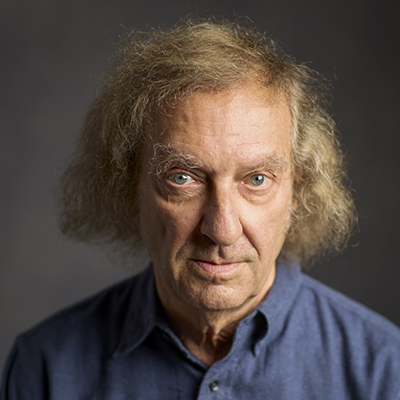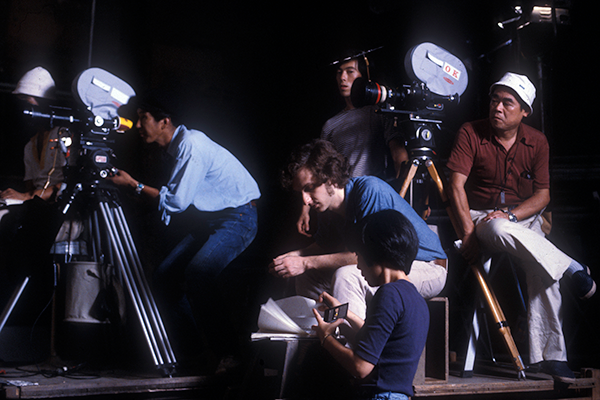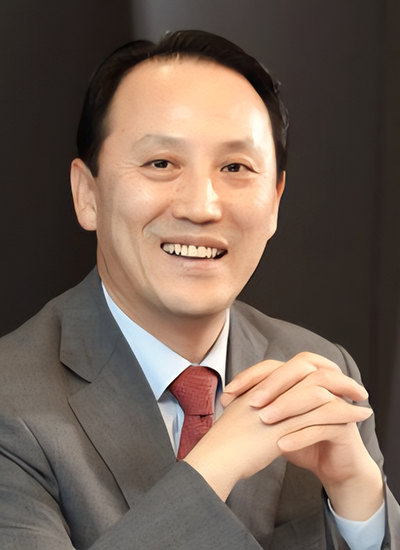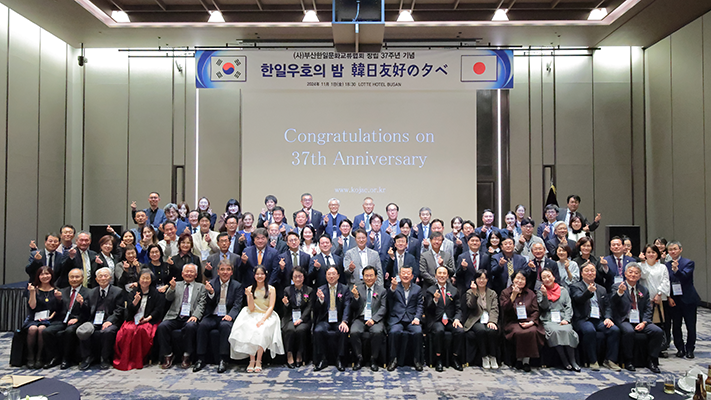The Japan Foundation Awards (2025)
The Japan Foundation (JF) is proud to announce the recipients of the Japan Foundation Awards 2025.
This year marks the 52nd anniversary of the Japan Foundation Awards, which were launched in 1973, the year after the establishment of the Japan Foundation. For the past 50 years, the Foundation has presented the Japan Foundation Awards to individuals and organizations that have made significant contributions to promoting international mutual understanding and friendship between Japan and other countries through academic, artistic, and other cultural pursuits.
For 2025, the two recipients listed below have been selected after the screening of 106 candidates nominated by experts and the general public.
The Japan Foundation Awards 2025 Commemorative Lectures
Archived videos are available on YouTube.
Marty Gross (Producer/Director, Marty Gross Film Productions Inc.) [Canada]

photo by Grant Delin
Marty Gross is a celebrated Canadian filmmaker, film archivist, and consulting producer renowned for his passionate commitment to bringing Japanese culture to audiences worldwide.
Born in Toronto in 1948, he attended York University in oriental studies and fine art before journeying to Japan in 1970 to train as a potter. Gross launched his filmmaking career with AS WE ARE, a short film made in his teaching studio about his work with children with special needs. His second film, Potters at Work (1976), a short, in-depth film about potters in Koishiwara, Fukuoka Prefecture, and Onta, Oita Prefecture. Gross went on to direct The Lovers’ Exile (1980), which was skillfully adapted into a 90-minute feature film with dynamic camerawork that captures the drama of the puppets and the mastery of the puppeteers, accompanied by powerful traditional gidayu music. With English subtitles by Donald Richie, the result is a captivating production that played a pivotal role in introducing the world to the art of Bunraku.
Throughout the years, Gross has forged strong ties with the Japanese film industry, serving as a consulting producer for the renowned US distributor The Criterion Collection. In this role, he played a key part in the release and distribution of countless classic Japanese films and conducted in-depth interviews with key industry figures, obtaining numerous testimonies of the value of Japanese cinema throughout history.

filming of The Lovers’ Exile at Daiei Film Studio
One of Gross’s most remarkable achievements is the restoration of old films. Through his Mingei Film Archive Project, he has unearthed and meticulously restored rare 16 mm footage captured in the 1930s by the legendary British potter Bernard Leach—a captivating visual testament to the influential Mingei (Folk Craft) Movement. Driven by a deep passion for this cultural movement, Gross has traveled to Japan, South Korea, the UK, and the US to gather footage, gradually compiling a vast archive. This collection has rekindled the belief, held by the Mingei Movement, that beauty can be found in everyday handcrafted objects, breathing new life into the movement’s timeless spirit for today’s audiences.
Through his lifelong dedication to sharing Japan’s traditional performing arts and folk crafts on film, Marty Gross has contributed meaningfully to international mutual understanding. His remarkable contributions make him a deserving recipient of the Japan Foundation Award.
JUNG Giyoung (Professor, Busan University of Foreign Studies) [Republic of Korea]

Jung, Giyoung has spent more than 30 years advancing Japanese language education, conducting research and teaching at higher education institutions in South Korea, while building a multifaceted career as an educator, researcher, and university administrator. At Busan University of Foreign Studies, he elevated the Japanese major to create a dedicated division and launched new majors in Korea-Japan Cultural Contents, Business Japanese, and Japanese & IT. Under his leadership, the department grew into the Division of Japanese, now home to over 1,000 students. This initiative is a pioneering effort in specialization and diversification in Japanese language education, and is highly regarded for offering a strong foundation for those pursuing academic or professional career paths.
Additionally, as a trailblazer in teaching methods and curriculum development, Jung has proactively addressed key challenges in Japanese language education such as integrating the use of information and communication technology (ICT), creating teaching materials of Japanese characters, and introducing Can-do self-evaluations. His research findings in these areas have earned him recognition both in South Korea and abroad. He has also been active in organizing academic conferences, training teachers, and collaborating with government agencies, making significant contributions to building the institutional foundations of Japanese language education.

Korea-Japan Friendship Evening (photo credit: Busan Korea-Japan Cultural Exchange Association)
Jung has also played a prominent role in fostering international mutual understanding and goodwill. Since 2003, he has helped develop a practical new model for environmental conservation and trust-building through beach cleanup activities on Tsushima Island, carried out in collaboration with Japanese and Korean students, residents, and NPOs. In addition, he has consistently supported Korean students in securing employment at Japanese companies, demonstrating a strong commitment to human resource exchange by sending more than 364 individuals to Japan since 2010. Beyond language education, Jung’s efforts have helped build lasting personal and cultural networks. In 2012, he established Busan Nihonmura (Busan Japanese Village) as a center for heritage language education, dedicated to preserving the Japanese language and culture. The outcomes of this project have been widely published and shared, and serve as a regional model. In 2024, he became president of the Busan Korea-Japan Cultural Exchange Association, where he is contributing to further deepening grassroots exchange.
In these ways, Jung has exhibited unwavering dedication to bridging mutual understanding between Japan and South Korea by using Japanese language education as a foundation to connect social issues—including the environment, employment, and cultural heritage—with education. His achievements make him a deserving recipient of the Japan Foundation Award, and we are proud to present it to him in anticipation of his future endeavors.
- The Japan Foundation Awards
- The Japan Foundation Awards Recipients, Presentation Ceremony and Commemorative Events in Previous Years
[Contact Us]
The Japan Foundation Public Relations Div.
Tel. +81-(0)3-5369-6075
Fax: +81-(0)3-5369-6044
Email: kikinsho@jpf.go.jp
(When sending an e-mail, please replace the full-width "@" character with a half-width character.)
- What We Do Top
- Arts and Cultural Exchange [Culture]
- Japanese-Language Education Overseas [Language]
- Japanese-Language Education Overseas [Language] Top
- Learn Japanese-language
- Teach Japanese-language
- Take Japanese-Language Test
- Know about Japanese-language education abroad
- The Japanese-Language Institute, Urawa
- The Japanese-Language Institute, Kansai
- Japanese-Language Programs for Foreign Specified Skilled Worker Candidates
- Japanese Language Education for Japanese Children Resident Overseas and for the Descendants of Migrants
- Archives
- Japanese Studies and Global Partnerships [Dialogue]
- JF digital collection
- Other Programs / Programs to Commemorate Exchange Year
- Awards and Prizes
- Publications
